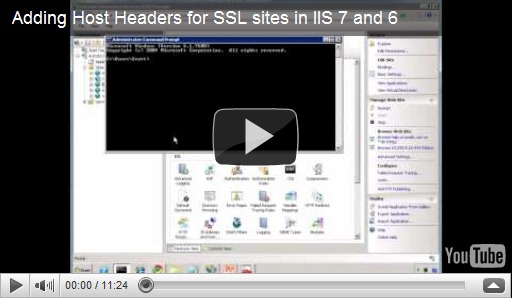Setting Host Headers for SSL Sites in IIS–Week 7 of 52
At first glance, the Host Header field is grayed out when applying host headers to SSL (HTTPS) sites in IIS 7.
This week I cover a trick plus a full featured way to set these host headers in IIS 7.0/7.5 and IIS 6. If you haven’t watched last week’s video, I recommend watching it first since it covers the reasons and issues for host headers on SSL sites.
This is week 7 of a 52 week series on various web administration related tasks. Past and future videos can be found here.
Here are some links mentioned in the video:
http://www.sslshopper.com/article-ssl-host-headers-in-iis-7.html
http://www.sslshopper.com/article-how-to-configure-ssl-host-headers-in-iis-6.html
Unified Communications Certificate (aka Subject Alternative Name [SAN]) options: http://www.bing.com/search?q=unified+communications+certifcate
